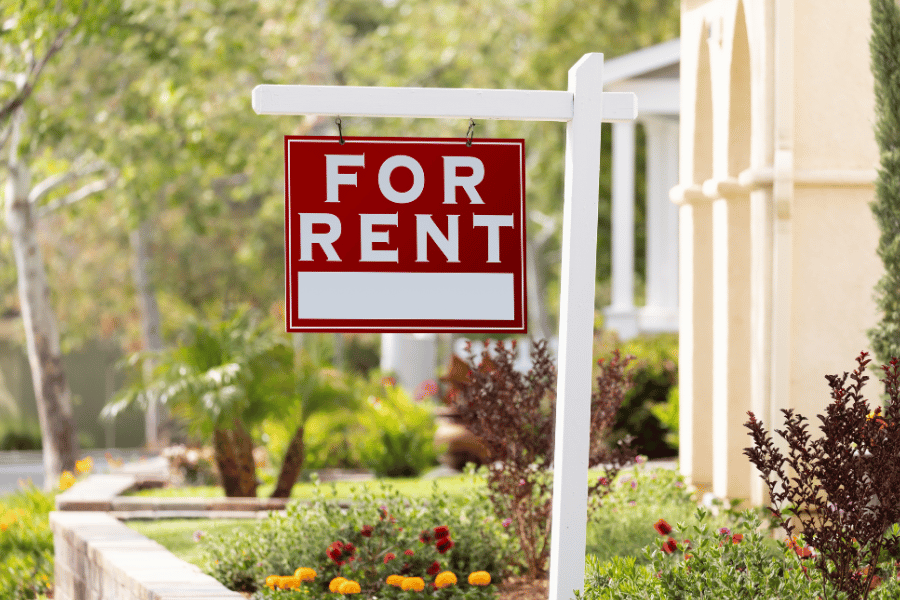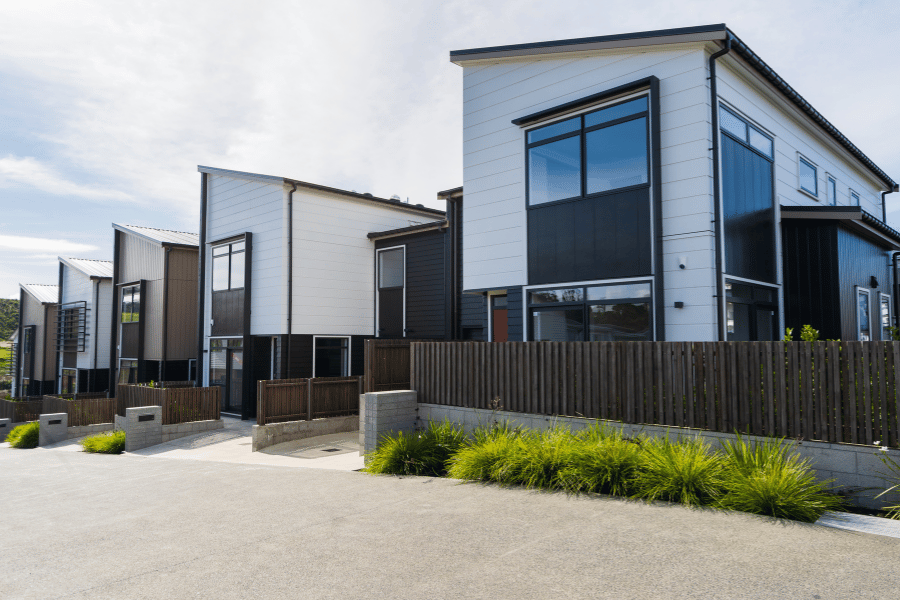Pros and Cons of Investing in Short-Term Rentals
Considering investing in short-term rentals? Here are the top pros and cons when deciding whether to invest in short-term rentals.
Investing in real estate has many benefits. Some homeowners shy away from real estate investments due to misconceptions that they are intimidating or require a large amount of money and effort, which is untrue.
Anyone can invest in real estate, although not everyone does. People will always be looking for a property to rent because they enjoy the freedom to move. Investing in short-term rentals will allow you to build your own equity and increase your cash flow.
With the rise of apps like Airbnb and VRBO, many investors are turning towards short-term rentals and renting out extra rooms at home to earn high returns compared to the typical extended lease. This strategy comes with risks; however, the benefits may outweigh them.
To help you decide if investing in short-term rentals is for you, we have compiled a list of the pros and cons. Ensure you look over these factors before investing.
Keep reading to learn all about the pros and cons of investing in short-term rentals.
1. Pro: Higher Rental Income Per Day
Short-term rentals have proved to be a great way to make extra cash. Compared to long-term rentals, short-term vacation rentals will typically yield higher returns per day. Renters on vacation often expect to pay a higher rate per day since it is a temporary stay.
Depending on the location and season, short-term rentals can be quite expensive. However, the renters will be expecting to spend money on the trip and are less likely to shy away from high costs.
Many investors or owners will post the rental property on one of the short-term rental apps. This creates an easy and safe way to reach renters and provide you with a steady stream of high-paying clients.
When setting the price of your rental, be sure to calculate the maintenance and upkeep costs. This includes cleaning before and after renters, which will add up for short-term rentals.

2. Pro: Easier to Adjust Rates
Similar to selling a home, as a short-term rental owner, you can set the rates to your liking. However, if you want to attract renters, you need to consider comparable homes in the area.
If you base your rate too high, then you may not attract any renters, and if you set your rate too low, you may lose money. Most owners will adjust the price depending on the time of year. For example, if it is a property on a popular beach, you can get away with higher rates in the summer. This is because most renters are looking for beach houses during the warmer months. In the winter, you may get fewer renters but can price the property lower to attract more.
With long-term rentals, you cannot raise the price of the rental unit in the summer to accommodate beach-goers. If a tenant is staying in the unit for a year or longer, it will have to be at a set rate.
Ensure to market your property for vacationers; this way, you can easily adjust the rates after guests check out. If your property is in a city like Raleigh, NC, you may be able to set the rates higher multiple times throughout the year. Check out the events throughout the year and set your rates accordingly.
3. Pro: No Long-Term Problem Tenants
One of the biggest risks as a long-term rental owner is problem tenants. Problems can range from property damage, late or partial payments, lease violations, and excessive complaints.
While all of these problems can happen with short-term rentals, long-term tenants are more likely to cause problems for landlords because their leases are longer. Short-term rental tenants can cause property damage; however, as the landlord, you should plan for this and set aside extra money in this case.
It may be difficult to get problem tenants to leave the unit or stop the behavior without resorting to eviction. A short-term rental tenant is only temporary. Additionally, you can leave bad reviews on your app if a tenant is causing problems. This will save you a headache and any future rental owners who may have to deal with this tenant later on.

4. Con: Higher Vacancies
While your property may be booked up during certain seasons, it may be empty during other seasons. For example, a beach rental will be booked during the summer, but it will mostly be empty during the winter.
Depending on your financial status and job, you have different options during the slower months. You could stay at the house yourself or continue trying to rent it out. Nevertheless, short-term rentals have a higher risk of vacancy compared to long-term rentals.
As a long-term rental owner, you can have peace of mind that the tenant will be staying on the property for the duration of their lease. You can know for almost complete certainty that they will pay for the entire lease. However, with a short-term rental, if the property isn't getting booked throughout the year, then you won't be getting any income.
If having a predictable cash flow is a requirement for you as an owner, then you should carefully consider where to buy a property. Again, you may be able to rent out a property throughout the year depending on the location and events in the area.

5. Con: Seasonal Demand
Most short-term rental owners buy properties in highly sought-after areas. These include mountain towns, beach towns, and big cities. While this means you'll make a lot of money in the busy seasons, it also means you won't make as much during the slow seasons.
Depending on where the property is located, the demand can shift dramatically. However, this is not always the case. For example, Asheville, NC, is a popular winter destination but still has plenty of tourists during the fall and summer. Other mountain towns may not have visitors during the warmer months.
This is one of the biggest cons when it comes to owning a short-term rental property. Therefore, you'll want to think of a strategy to attract renters during the off-season.

6. Con: Local Regulations
As a homeowner, you'll always be subjected to local regulations. However, as a rental owner, your tenants will also be subjected to the same local regulations. This can be hard to manage since the owner isn't in the home to control tenants. Some of the local regulations can include a curfew, noise complaints, and more.
Local regulations also apply to the length of short-term leases. For example, in Raleigh, a short-term rental can only be occupied by one tenant for no more than 30 days.
Here are some more short-term rental regulations you should know about in Raleigh, NC:
- Every short-term rental operator shall first apply for a procure zoning permit from the City.
- Cooking facilities are not permitted in any bedroom.
- No exterior advertising shall be allowed.
- In residential zoning districts, short-term rentals shall not utilize the premises for holding special events or gatherings.
- Every short-term rental operator shall maintain a list of all short-term rental lodgers staying on the premises for a period of three years.
- The zoning permit number authorizing the short-term rental shall be conspicuously posted on all advertisements for short-term rentals and the subject property.
As a short-term rental property owner, you should be aware of all local and state regulations where the property is located. If you do not adhere to these regulations, then you risk losing the property or paying fines.
Some cities, like Pinehurst, NC, a popular golfing destination that recently hosted the 2024 U.S. Open, have specific regulations to account for the influx of visitors. Pinehurst passed an ordinance in 2022 that bans the creation of new short-term rentals. Regulations like this are essential to know if you are planning on investing in a short-term rental in an unfamiliar area.
7. Should You Invest in Short-Term Rentals?
Investing in short-term rentals has many benefits and is a great option if you are looking for another source of income. However, every big decision has its drawbacks, and you must evaluate all of them before making a decision.
Short-term rentals can be treated as a business, which has its perks. These include tax deductions, higher income, and more. However, it is still a great deal of work to manage a rental property. Depending on how close you live to the property, you may need a property manager or cleaning crew. It will save you money to handle everything yourself, but it might not be worth it, depending on how much time you're willing to put towards the property.
Consider your financial status before committing to owning a short-term rental property. The passive income you'll earn may not always be worth the effort it takes to keep a rental property alive. Keep in mind that if owning the property becomes too much, you can always sell the short-term rental property and earn some of your money back.

Methodology
We used information and data from several different sources, as well as our own data, to determine everything you need to know about the pros and cons of investing in short-term rentals. Most of the data was sourced from the following sources:
- WRAL News
- The City of Raleigh
FAQ: Investing in Short-Term Rentals
Here are some commonly asked questions about investing in short-term rentals.
Can you really make money with short-term rentals?
Short-term rentals can be a lucrative investment if you know how to manage it. There are many factors to consider, including the location, technology, good guest experiences, and more.
What is the average profit for a short-term rental property?
The average profit for a short-term rental property is typically between 25% and 50% of annual rental income. Much of the income will go back into the property for repairs, updates, and upkeep.
How do we maximize profit in short-term rentals?
In order to maximize profit, ensure you are updating your listing regularly, creating a direct booking website, providing exceptional guest experiences, and price accordingly.
What rental properties are most profitable?
Typically, single-family homes create the most steady profits because of lower management costs and steady appreciation. Multifamily properties can generate higher cash flow. However, they can cost you more time and effort.
How do I make my short-term rental stand out?
In order to attract renters, you need to learn how to market the home properly. Consider getting professional photos taken, showing off the property in the best light. Highlight the interior design or exterior design of the rental. Additionally, create fun and engaging aspects; for example, some rentals include a list of fun things for guests to do in the area.
Investing in Short-Term Rentals - The Bottom Line
While debating whether or not to invest in short-term rentals, you should consider all the important factors. These include management, repairs, decorations, location, and much more.
Location may be one of the biggest factors to think about when investing in short-term rentals. Buying a property in a good location can make a huge difference in your monthly income. Many properties along the water are more likely to provide the best value for your money.
There is much to consider when you start investing, but we promise it will be worth it. As you begin searching for where to invest in short-term rentals, we recommend meetings with a trusted real estate specialist. Check out our guide on rental scams to keep yourself protected, too.
If you are considering a new city, check out the Raleigh area in North Carolina. Feel free to contact one of our helpful real estate specialists, as they are eager to help you find the perfect location. We know that investing can be overwhelming, but a real estate agent can walk you through the entire process.




